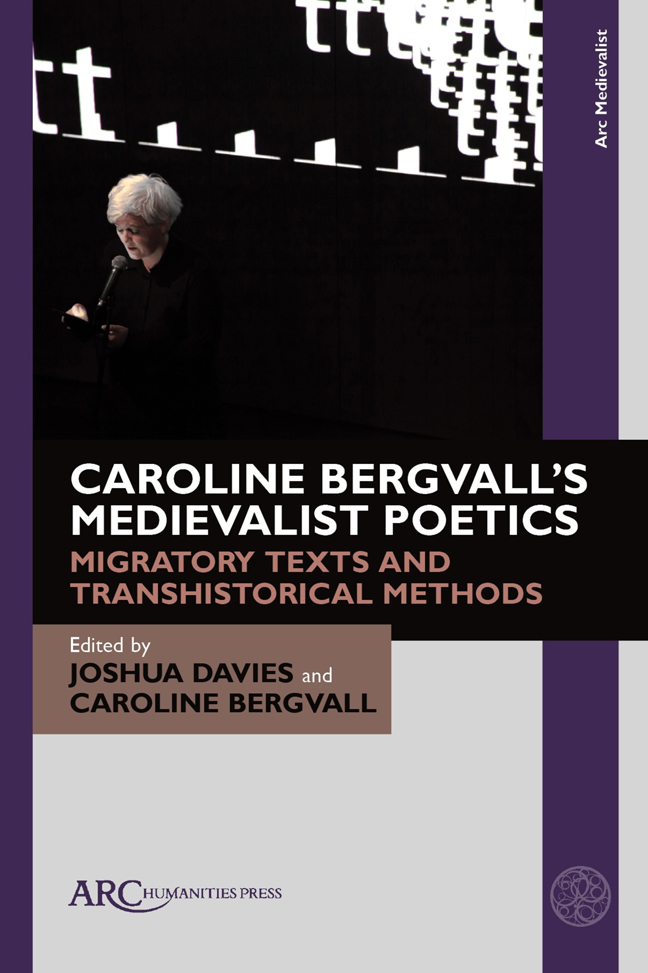Chapter 7 - All at Sea
Published online by Cambridge University Press: 20 February 2024
Summary
URSULA K. LE GUIN’S writer’s handbook Steering the Craft is one of my Desert Island books. It’s a compendium of endlessly fascinating thoughts about creativity and human psycho logy, tied together by a loose but practical nautical metaphor (handy for getting off the island as well as filling the time on it).
But where Le Guin focuses pragmatically on charting a course, Caroline Bergvall’s new poetry book is about what happens when you are set adrift. “Being lost while hold-ing on is simply getting stuck,” she writes, quoting the feminist and queer thinker Sara Ahmed: “Being lost is a way of inhabiting space by registering what is not familiar” (139).
This statement comes from “Log,” the eighth section of the book. It is a captain’s log of poetic exploration, being Bergvall’s account of writing two major pieces, “Seafarer” and “Report.” From overall structure to individual words, the diary delves into the difficulties and delights of making creative work in the midst of political and personal turmoil.
Above all, “Log” recounts the sensation of lostness: of being lost in work, in language, in the politics of immigration, in between the end of old love and the beginning of new love, and in the ways all these things cut together. “Everything is connected in the vast chamber of the world, beyond the callous, brutal politics” (135).
But callous, brutal politics is at the fore of Drift’s conception, despite its lyricism. Bergvall, whose father is Norwegian, uses Scandinavian and British seafaring poems of the Middle Ages as a way of reframing the current crisis around migration in Europe. These texts act as a reminder of Europe’s cultural and economic connection to the sea, charting a course from the Vikings, through colonialism, to contemporary slavery that puts prawns on our plates.
“Report” is at the heart of the book, a prose piece compiled from “Report on the ‘Left-to-Die Boat’” written by academics at Goldsmiths College, and an interview with a survivor, Daniel Haile Gebre, from the boat infamously abandoned in the Mediterranean by the Italian navy and international shipping at the end of March 2011.
- Type
- Chapter
- Information
- Caroline Bergvall's Medievalist PoeticsMigratory Texts and Transhistorical Methods, pp. 73 - 76Publisher: Amsterdam University PressPrint publication year: 2023

